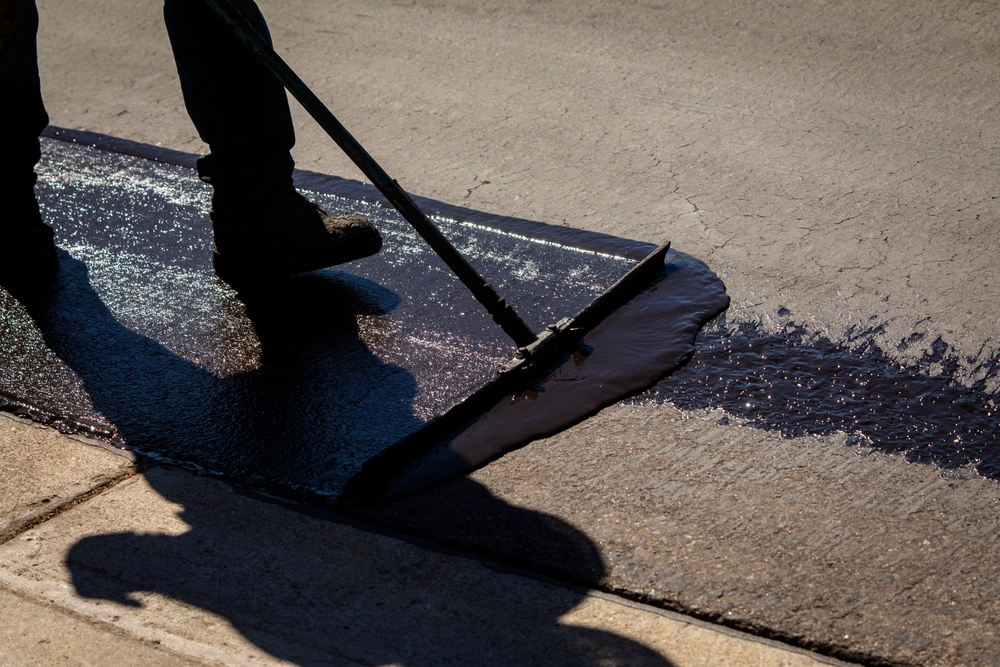Parking lots are more than just areas where we can conveniently park our vehicles. There really is more than meets the eye. They need a careful design strategy especially when it comes to water runoff and drainage. The last thing you want is for the water to affect neighboring buildings, nearby properties, pedestrian traffic, and the environment. The quality of asphalt used in parking lot paving in Northeast Philadelphia can and will make a difference. Proper planning in advance will prevent issues and headaches down the road. Take a look at why asphalt quality can impact the drainage in your parking lot.
Porous Asphalt Vs. Non-Porous Asphalt In Northeast Philadelphia
There is a difference when it comes to the permeability of asphalt, especially with the seasonality of Northeast Philadelphia. The summers are hot, and the winters are cold creating asphalt stress. Porous asphalt, known as permeable asphalt is designed to allow water to pass through the surface and into the layers underneath. This can significantly reduce water puddles, especially during heavy rainfall. High-quality porous asphalt directs water away from the surface.
On the other hand, non-porous asphalt does not allow water to pass through. The parking lot surface must be designed with strategic and expensive grading or drainage systems to prevent uneven surfaces that trap the water creating puddles and runoff that will certainly create unforeseen problems that will need to be addressed.
Asphalt Longevity and Maintenance
High-quality asphalt usually has a longer lifespan than lower-quality asphalt products. This is especially true when the parking lot is well maintained. Water accumulation, freezing, and other issues through the years will create cracks, potholes, and other damage that prevents proper water flow creating larger puddles and pools. This leads to frequent repairs that could disrupt the parking lot’s overall drainage system. Investing in higher-quality asphalt is a superior product.
Parking Lot Design: Sloping and Grading
Sloping and grading matters just as much as the asphalt. The quality of the asphalt makes a difference in the overall parking lot design and will determine how it needs to be sloped and graded. High-quality asphalt requires a subtle slope to direct water drainage and will ensure the water flow runs off where it is intended. Drainage systems, like stormwater drains and culverts, rely on the surface of the asphalt to direct the water runoff. Poor-quality asphalt and poorly designed parking lots will cause flooding or puddles in unintended areas of the lot.
Water Runoff and Environmental Impacts
Porous asphalt will significantly reduce the water that runs off into nearby waterways. This is better for the environment in a number of ways. Porous asphalt also allows water to drain into the ground, recharging local groundwater. High-quality asphalt positively impacts the surrounding water management system and environment. Less pollutants will then drain into the waterways.
Local Safety Throughout the Entire Year In Northeast Philadelphia
Make sure your customers are safe. It just makes sense that parking lots that have proper drainage are safer for both drivers and pedestrians throughout the entire year. There are no puddles or pools that are messy in the warmer months and icy in the cold months. The last thing you need to worry about is someone getting hurt while in your parking lot.
Asphalt Quality Makes A Difference
High-quality asphalt is an instrumental investment that will make a long-lasting difference in your parking lot. Proper planning and understanding how the quality of asphalt will save you time, money, and potential problems in the long run is the first step. Contact us to discuss your paving and parking lot seal coating maintenance in Montgomery County today.




